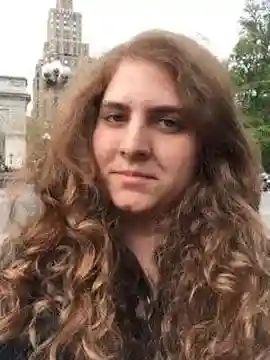One of my coworkers likes to wish people a Happy New Year with the caveat/reminder that time is meaningless and circular and our celebrations of a new year (and subsequently, hopes for improvement come Jan. 1) are equally meaningless.
Maybe — probably — he has a point. But that hasn't, and won't, stop me from setting my meaningless goals, declaring my intentions for the new year, hanging all my hopes on the idea of a better 2021.
I don't think I'm the only one who feels like 2020 was a crap year. Scratch that: I *know* I'm not the only one who feels that way. There have been countless articles about it. It just felt like tragedy piled on top of tragedy to the point of being almost comical — almost, if 300,000 Americans (and countless more global citizens) hadn't died; if hunger, cold, homelessness and unemployment hadn't soared.
At the beginning of 2020, I felt like 2019 was the worst possible year I'd lived through in my then 26 years of life. Maybe I was right. But as I posted on Instagram on Jan. 10 about how "unseasonably optimistic" I felt, I had bright hopes and plans for the year.
I had written a series of blog posts at the end of 2019 chronicling my favorites of the year and of the 2010s. And I'd finished it off with a set of writing and reading goals for 2020. So at the end of the year, I looked back on them and wrote a retrospective.
Shocking to no one, least of all myself, I accomplished very few of them. Maybe my coworker is right, and time is meaningless. For sure the old adage about the best-laid plans going awry is as true today as it's ever been.
But here I sit. It's the beginning of 2021, and I've got a whole set of new goals for the year. Except this year I'm calling them "intentions."
This year, maybe better than any other year in my 27 years of life, I understand that I have very little control over anything in this world. I can't control whether a pandemic breaks out and derails everything. I can't control whether murder hornets come back to haunt us. I can't control whether an agent reads and falls in love with the book that's lived, rent-free, in my heart and mind for nearly five years now. There's a lot I can't control. I can't even control whether I get into an accident as I go to take my cat to get her nails clipped.
What I can control is my response.
And this year, I want my response to be joy. In the face of the hardest of times, when I feel hopeless about my career and my depression rages and I am lonely and I wonder if I'll ever get the things I want — I intend to choose joy.
But that's not what this article is about. This article is about reading plans. Setting reading goals may seem archaic, especially after I just sat here and waxed poetic for who knows how many words about the inevitability of things going awry.
But I set them anyway. Because I believe in hope. Because I believe in optimism. Because I believe in trying.
Last year, I set a Goodreads Reading Challenge goal of 32 books and I read 44. It amazed me, because I haven't met my reading challenge goal since 2017, and then it was only because I lowered it to match the number of books I'd actually read.
This year, I'm setting a goal of reading 45 books. I heard someone once say they always set their goal to be one book more than they'd read the year before, and I decided to steal that.
I have a few more murky goals, as well. Things like "read more nonfiction, especially memoir and autobiography," and "read more adult novels." Things like, "read a ton of YA contemporary" but also "get into contemporary fantasy" because I discovered last year that it may be my second-favorite genre.
In general, I want to fill my life with books. I want to read at least an hour every day, closer to an hour and a half or two hours on the weekends. I want to read books *in* my genre so I can stay up-to-date, and I want to read books *out* of my genre so I can expand my reading tastes and discover new things to love and may want to write someday.
I want to read books written by the authors I interview and wind up profiling.
Reading was my first love, even before writing. And even though my life is chock-full these days, with a demanding full-time job, taking care of myself and my cat and my friendships, trying to fit fresh air and movement into the cracks, and writing books, I know reading needs to have an important place in the equation, as well.
So I make a goal. I set an intention. I know that things may not pan out, because who knows what will happen over the 365 days of 2021. I know that time is arbitrary. But I'm a hope-driven person, and so I do everything I can to hope for the best.

About the author
Karis Rogerson is a mid-20s aspiring author who lives in Brooklyn and works at a cafe—so totally that person they warn you about when you declare your English major. In addition to embracing the cliched nature of her life, she spends her days reading, binge-watching cop shows (Olivia Benson is her favorite character) and fangirling about all things literary, New York and selfie-related. You can find her other writing on her website and maybe someday you’ll be able to buy her novels.







